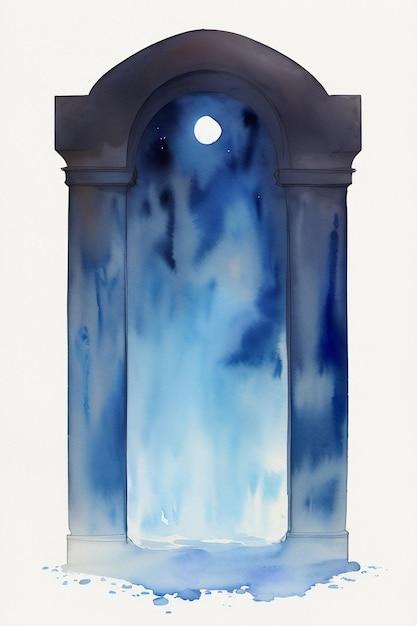Welcome to our blog! Today, we’re diving into the captivating world of Gothic fiction and exploring one of its crucial elements. What is it about this genre that has captivated readers for centuries? Why do authors weave tales that are dark, eerie, and filled with suspense?
Gothic literature, with its origins dating back to the 18th century, has stood the test of time, continuing to enthrall and fascinate readers to this day. The genre emerged as a response to the rational ideals of the Enlightenment period, rejecting the notions of reason and order in favor of exploring the realms of the unknown. It allows readers to delve into the mysterious and uncanny, often blurring the lines between reality and the supernatural.
In this blog post, we’ll uncover the traditional origins of Gothic literature and its purpose. Most importantly, we’ll focus on one crucial element that consistently pops up in Gothic fiction, keeping readers on the edge of their seats. So, put on your detective hat, light a candle, and get ready to explore the secrets of Gothic fiction!

Important Element of Gothic Fiction: Setting the Haunting Stage
The Allure of Gloomy Castles and Decaying Mansions
When it comes to Gothic fiction, one cannot ignore the crucial role played by the setting. But forget about sunny beaches and lively cities; we’re delving into the eerie charm of gloomy castles and decaying mansions. These dilapidated architectural wonders serve as the perfect backdrop for the spine-chilling tales that unfold within their walls.
The Haunting Atmosphere: Dark, Dreary, and Deliciously Unsettling
Step into a world where darkness prevails, where the macabre dances with the fantastical. Gothic fiction relies heavily on creating a haunting atmosphere that engulfs readers in a sense of unease. From the creaking floorboards to the shadows cast by flickering candlelight, every detail is meticulously crafted to immerse readers in a world that sends shivers down their spines.
Embracing the Supernatural: Ghosts, Monsters, and the Unexplained
What would Gothic fiction be without a touch of the supernatural? Ghostly apparitions, menacing monsters, and eerie phantoms form the backbone of this captivating genre. Gothic fiction revels in the unexplained, the otherworldly, and the realms beyond our wildest imagination. Prepare to encounter specters that send chills up your spine and creatures that make your heart skip a beat.
Exploring the Dark Depths of Human Psyche
Gothic fiction isn’t just about tangible terrors; it also delves into the darkest depths of the human psyche. It unravels the inner turmoil, the hidden secrets, and the complex emotions that dwell within our minds. Through its intricate characters, the genre explores themes of madness, obsession, guilt, and even forbidden desires. Brace yourself for a psychological rollercoaster that will leave your mind reeling.
The Power of Mystery and Suspense
One cannot underestimate the power of mystery and suspense in Gothic fiction. The genre thrives on keeping readers on the edge of their seats, their hearts pounding with anticipation. Each twist and turn, each revelation and hidden truth, is carefully orchestrated to keep readers guessing until the very end. Prepare to be captivated by the art of suspenseful storytelling at its finest.
Conclusion: Where Shadows and Whispers Reign
In the depths of Gothic fiction, the setting takes center stage. It is the gloomy castles, the haunting atmosphere, the supernatural encounters, the exploration of human psyche, and the thrill of mystery and suspense that make this genre a timeless favorite. So, let yourself be drawn into a world where shadows dance on every surface, and whispers echo down empty corridors. Enter, if you dare, the realm of Gothic fiction.
Is Gothic fiction tugging at your heartstrings? Dive into the beauty of darkness and explore the captivating world that awaits within these pages.

Frequently Asked Questions about Gothic Fiction
Gothic fiction has long captivated readers with its dark and mysterious themes. From haunted castles to eerie supernatural encounters, this genre has left its mark on the literary world. If you’re curious about the origins and elements of Gothic fiction, you’ve come to the right place. In this FAQ-style subsection, we’ll answer some commonly asked questions and shed light on this fascinating genre.
What is the origin of Gothic
The origin of Gothic fiction can be traced back to the late 18th century in England. It emerged as a reaction against the Age of Enlightenment’s rationalism and scientific progress. The term “Gothic” was first associated with architecture, referring to the medieval-style buildings that were seen as uncivilized. Soon, this term extended to literature and embraced the mysterious, supernatural, and eerie elements found in classic Gothic tales.
What is one element that is traditionally found in Gothic literature
One element that is traditionally found in Gothic literature is the presence of a haunted or eerie setting. Whether it’s a crumbling castle with secret passageways, a secluded mansion cloaked in darkness, or a desolate moor enveloped in fog, the setting creates an atmosphere of suspense and impending doom. It serves as a backdrop for the mysteries, horrors, and supernatural occurrences that unfold within the story.
Why was Gothic literature written
Gothic literature was written for various reasons, but one prominent purpose was to elicit intense emotions from readers. Authors aimed to provoke fear, awe, and suspense through the vivid depiction of eerie settings and supernatural encounters. Additionally, Gothic fiction often explored themes of madness, obsession, and the unknown, reflecting the anxieties and uncertainties of the time. It served as a form of escapism and entertainment for readers seeking thrills and chills.
What is an important element of Gothic fiction
An important element of Gothic fiction is the use of a Byronic hero or anti-hero. These characters possess a complex mix of charm, mystery, and moral ambiguity. They are often brooding, haunted by dark secrets, and tormented by their own internal conflicts. The Byronic hero, named after the famous poet Lord Byron, entices readers with their charisma, captivating them in the midst of the dark and twisted narrative. Their allure lies in their ability to challenge societal norms and explore the depths of human nature.
Gothic fiction continues to enthrall readers with its dark and thrilling storytelling. From its origins in 18th century England to the enduring elements found within the genre, Gothic literature has left an indelible mark on the literary landscape. So, if you find yourself drawn to haunted settings, mysterious anti-heroes, and the exploration of hidden truths, dive into the world of Gothic fiction and bask in its suspenseful allure.
*Note: This blog post was generated with the assistance of artificial intelligence.
